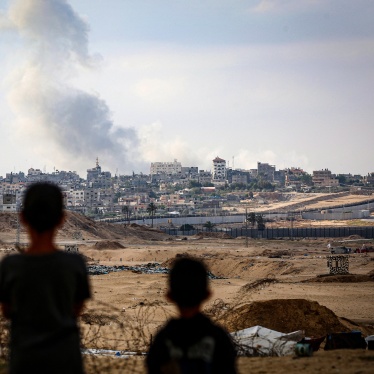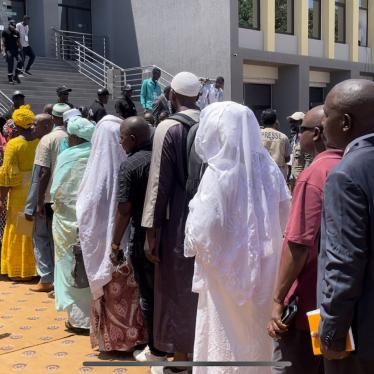(Geneva) - The harsh prison sentence given to a prominent Burmese academic this week underlines the urgent need for the United Nations Commission on Human Rights in Geneva to increase pressure on Burma to unconditionally release all political prisoners, Human Rights Watch said today. The Commission will review a report on the human rights situation in Burma tomorrow.
On March 25, the military government announced that Dr. Salai Tun Than, a retired university professor, had been sentenced to seven years in prison under Burma's national security legislation.
Since October 2000, the Burmese government has been carrying on confidence- building talks with Daw Aung San Suu Kyi, leader of the National League for Democracy (NLD). Aung San Suu Kyi remains under house arrest in Rangoon. Serious human rights violations have occurred in Burma since the violent suppression of the pro-democracy movement in 1988.
"With this sentence, the Burmese government is making it clear that it will crush any and all dissent," said Mike Jendrzejczyk, Washington Director of Human Rights Watch's Asia Division. "The harshness of the sentence suggests that, political dialogue notwithstanding, the Rangoon regime is fundamentally unchanged."
Dr. Salai Tun Than, seventy-four years old, was arrested for conducting a peaceful protest on November 29, 2001, in front of the Rangoon City Hall. He distributed copies of a petition letter calling on the Burmese government to hold a general election in one year and to transfer power to the winners. Burma has refused to implement the results of the May 1990 election that was overwhelmingly won by the National League for Democracy (NLD).
Dr. Salai, retired from Yezin University in Pyinmana, Upper Burma, was convicted under Article 5(j) of the 1950 Emergency Provisions Act, a sweeping provision that says any person who "infringes on the integrity, health, conduct and respect of State military organizations and government employees," or "spreads false news about the government" or "disrupts the morality or the behavior of a group of people" shall be sentenced to up to seven years in prison.
In a written submission to the U.N. Commission on Human Rights, Paulo Sergio Pinheiro, the Special Rapporteur for Burma, condemned controls on freedom of expression under more than half a dozen laws, including the Emergency Provisions Act of 1950, noting that these laws are frequently used to imprison people for peacefully expressing their views or even for reading materials deemed illegal. He welcomed the release of some Burmese political prisoners since the beginning of 2001, but said that the unconditional release of all political prisoners "is a pre-requisite for moving to the next phase of talks" between the NLD and the government. Pinheiro is due to report on March 28 on the results of his most recent fact finding trip, and the Commission will later consider a resolution on human rights in Burma, which should include strong recommendations, Human Rights Watch said.






